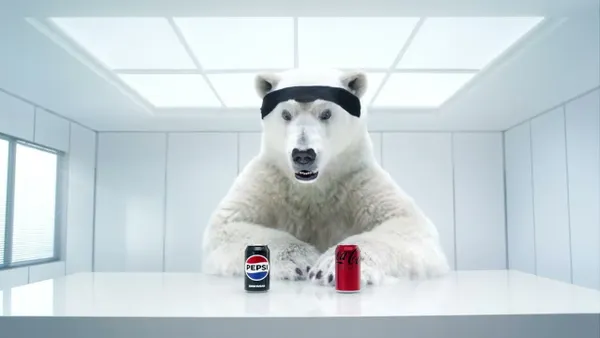Quick Facts
Burger King's 'Google Home of the Whopper'
-
Estimated earned media:
$135 million
-
Cannes Lions Award:
Grand Prix for Direct
-
Number of PO'd Wikipedia editors:
9
Voice search through smart devices like Google Home is set to seriously disrupt the ad world in the coming years, with a recent Juniper Research report forecasting ad spend on voice-powered digital assistants will reach $19 billion by 2022. This year's best campaign asks: What happens when an ad disrupts those technologies instead?
Burger King's "Google Home of the Whopper," made with the brand's creative agency David Miami, commanded and held the attention of consumers and marketers alike back in April. The stunt became a catalyst for controversy, conversations around technology's vulnerability and ultimately a lot of industry praise, snagging the Grand Prix in the Direct category at Cannes Lions and now Marketing Dive's Campaign of the Year award.
A risky bet in a year where brands are feeling increased pressure to play it safe or otherwise face consumers' ire, Burger King's creative play infuriated and inspired in equal measure, generating an estimated $135 million in earned media and becoming the company's most talked-about TV commercial of all time, per a case study from David the Agency.
The only thing it didn't do was leave the viewer indifferent.
Hacking into the Home
On its surface, the initial 15-second "Connected Whopper" spot was simple enough, featuring a Burger King employee who explains that the ad's time constraints don't allow him to fully detail what makes the Whopper so great. As the commercial ends, he passes those duties off to Google Home, saying, "Okay Google, what is the Whopper burger?" This statement triggered the built-in Google Assistant on any Home that heard the ad to read the Wikipedia entry for the signature menu item, bridging the TV creative with voice search.
A fun, experimental collaboration between an iconic restaurant brand and an innovative technology company?
Not exactly: Google was apparently unaware of the ad and unamused that it essentially hijacked its software sans permission. It shut down the Whopper search functionality almost immediately — a move Burger King appeared to have planned for by deploying backup versions of the spot that aired around programs like "The Tonight Show With Jimmy Fallon" and "Jimmy Kimmel Live!" and continued to take over Google Homes.
The effort grabbed media headlines almost as quickly as it took over the devices, and some of the early write-ups — ours included — couldn't help but smell a potential PR fiasco in the works.
Running the risks
True to internet form, trolls were fast to edit the Whopper's Wikipedia entry to include lines like the burger is "cancer-causing," which Google Assistant would read aloud to users.
Some frustrated Wikipedia editors soon took umbrage not only with the inflammatory changes made by third parties but also ones that Burger King had apparently written in itself, which they claimed violated the site's policies in regards to advertising. Throw some concerns about consumer privacy into the mix, and Burger King and David Miami had sparked a controversy that lasted for weeks.
The ad clearly touched several nerves, but beyond the outrage, showed just how vulnerable technology can be, with a TV commercial, of all things, throwing the system out of whack. In a year that's seen many big-name brands grow more skeptical of digital media and even peel back their ad spend, Google Home of the Whopper reinforced that those channels are still very much a Wild West where marketers should tread carefully.
While Burger King made a truly novel, difficult-to-replicate impression that helped it lock in the Cannes Grand Prix, the campaign also fit into a broader tradition with the awards show: A recent study by Ace Metrix found ads that were labeled 'annoying' make up 20% of the big Lions winners, a percentage nearly on par with the next three top-ranking categories combined.
Looking Forward
Burger King has continued to execute stunts that leverage bleeding-edge technology this year, both in the U.S. and abroad. As it tests a cryptocurrency-based loyalty program in Russia, can marketers expect a similar offering stateside sometime soon?













